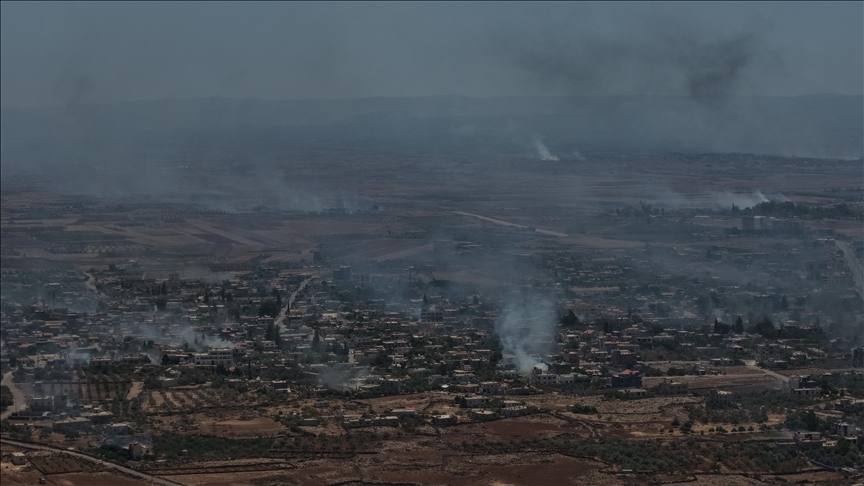Syrian Red Crescent demands protection of volunteers, civilians amid clashes in southern Syria
‘Unfortunate news has reached us regarding violations against our volunteers, vehicles, and facilities during their response to the events in the southern region (Suwayda),’ says group

ISTANBUL
The Syrian Arab Red Crescent demanded on Friday the protection of its volunteers and civilians in the southern areas and urged that their lives not be put at risk.
It came as the Suwayda Governorate in southern Syria has experienced unrest for six straight days, following clashes between Bedouin tribes and armed Druze groups that escalated into acts of retaliation.
“Unfortunate news has reached us regarding violations against our volunteers, vehicles, and facilities during their response to the events in the southern region,” the Syrian Arab Red Crescent said in a statement published by the Syrian news agency, SANA.
It added that among them were “individual violations against volunteers, gunfire at an ambulance, the burning of a warehouse, and several vehicles parked beside it.”
The group expressed deep sorrow and regret about the violations.
It called for “the necessity to neutralize and protect civilians and volunteers and not to expose their lives to danger.”
The organization affirmed its “commitment to its humanitarian principles, foremost of which are neutrality and impartiality, and its continued provision of life-saving services in Suwayda and Daraa, emphasizing the safety of its volunteers as a priority.”
Israeli forces launched airstrikes Wednesday against more than 160 targets across four areas of Syria -- Suwayda, Daraa, Damascus and the Damascus countryside -- killing three people and injuring 34 in the capital alone.
On June 13, clashes broke out between Bedouin Arab tribes and armed Druze groups in Suwayda. The violence escalated, leading to deadly attacks by Druze fighters on Syrian security forces deployed in the area. Dozens of soldiers were reportedly killed.
A temporary ceasefire was reached between government forces and local Druze factions but that soon collapsed. Israeli airstrikes followed, targeting Syrian military positions and infrastructure.
Israel has cited the “protection of Druze communities” as a pretext for its attacks in Syria, especially in the south.
But most Druze leaders in Syria have publicly rejected any foreign interference and reaffirmed their commitment to a unified Syrian state.
Following the fall of Bashar Assad in December 2024, Israel intensified its air campaign in Syria and declared the buffer zone between the two countries defunct, alongside the 1974 Disengagement Agreement.
Assad, Syria’s leader for nearly 25 years, fled to Russia in December, ending the Baath Party regime, which had been in power since 1963.
A new transitional administration led by President Ahmad al-Sharaa was formed in Syria in January.
Anadolu Agency website contains only a portion of the news stories offered to subscribers in the AA News Broadcasting System (HAS), and in summarized form. Please contact us for subscription options.







